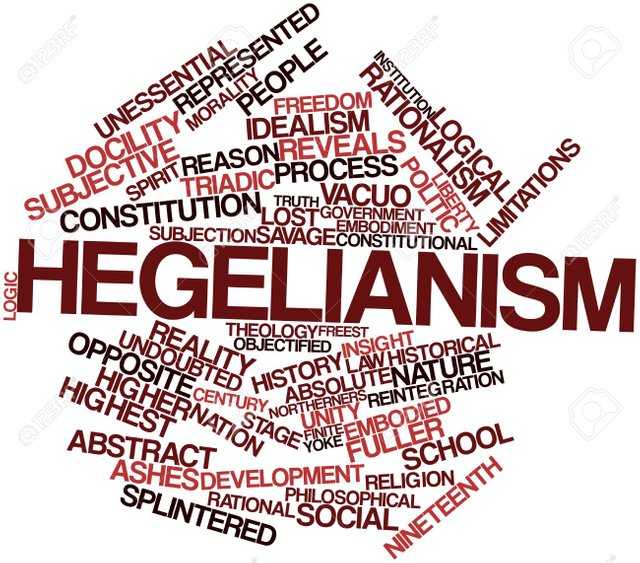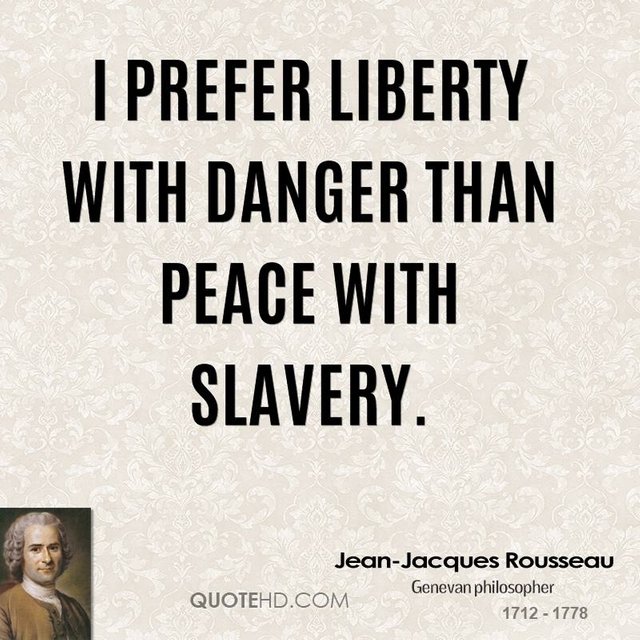The Roots of Hegelianism and Aristotle's View of Best State
The Roots of Hegelianism and Aristotle's View of Best State

Image Source
In Plato's writings, we can discover an echo of the political happenings in Athens of the solidification of democracy. It appears that even Plato started to question whether some type of democracy does not remain. In Aristotle, we discover signs that he didn't question any more, in spite of the fact that he is no companion of democracy, he acknowledges it as unavoidable, and is prepared to trade off with the adversary.
Availability to trade off is one of the exceptional qualities of Aristotle's all encompassing writings. They demonstrate no hint of the disastrous and blending conflict that is the thought process of Plato's work. Rather than infiltrating knowledge and bold idea, we discover dry systematization and the affection, shared by such a large number of unremarkable authors of later circumstances, for settling any inquiry whatever by issuing a sound and adjusted judgment which does equity to everyone, in other words, by intricately and gravely overlooking what's really important.
This angering propensity which is systematized in Aristotle's popular teaching of the mean is one of the wellsprings of his so regularly very silly feedback of Plato. A case of Aristotle's absence of intuition, for this situation of historical intuition, is the way that he submitted in the clear democratic combination exactly when it had been superseded by the magnificent monarchy of Macedon, a historical occasion which happened to get away from his notice.
Aristotle, who was a courtier at the Macedonian court, picked by Philip to be the educator of Alexander the Great, appears to have underrated these men and their plans, maybe he thought he knew them too well. Aristotle's thinking is altogether commanded by Plato. He took after his awesome educator as nearly as his inartistic personality allowed in his general political standpoint. So he embraced and systematized, Plato's naturalistic hypothesis of slavery.

Image Source
In some minor focuses, Aristotle somewhat mitigates Plato's hypothesis of slavery and properly reprimands his instructor for being excessively cruel, he just can't avoid the open door for a bargain not regardless of the possibility that it is a trade off with the liberal inclinations of his opportunity, if they are direct and adjusted. Be that as it may, the hypothesis of slavery is just a single of Plato's numerous political ideas to be received by Aristotle. Particularly his hypothesis of the best state, the extent that we know it, is demonstrated upon the speculations of the republic and the laws and his rendition tosses impressive light on Plato.
Aristotle's best state is a trade off between three things, a Platonic aristocracy, a sound and adjusted feudalism and some democratic ideas yet feudalism has the best of it. With the democrats, Aristotle holds that all nationals ought to have the privilege to take an interest in the government. Be that as it may, this is not intended to be as radical as it sounds, for Aristotle clarifies without a moment's delay that slaves as well as all individuals from the creating classes are barred from citizenship. In this way he instructs with Plato that the regular workers must not manage and the decision classes must not work, nor win any cash.
Just chasing, war, and comparative leisure activities are viewed as deserving of the primitive rulers, they have arrive, however should not work it themselves. Aristotle's dread of any type of cash procuring, for example of all professional exercises, goes significantly more distant than Plato. Aristotle broadens the deriding utilization of the term in order to cover all interests which are not immaculate diversions. Actually, his utilization of the term is extremely close to our utilization of the term professional, all the more particularly in the sense in which it precludes in a beginner rivalry, yet additionally in the sense in which it applies to any specific master, for example, a physician.
For Aristotle, each type of professionalism implies lost caste. A primitive man of his word, he demands, should never take excessively enthusiasm for any occupation, craftsmanship or science. There are likewise some human sciences, expressions which a noble man may obtain, however constantly just to a specific degree. For on the off chance that he takes excessively enthusiasm for them, at that point these insidious impacts will take after, in particular, he will wind up noticeably capable, similar to a professional, and lose caste.

Image Source
This is Aristotle's concept of a liberal instruction, the thought, tragically not yet old, of a courteous fellow's training, rather than the training of a slave, or of a professional man. It is in a similar vein when he over and over demands that first standard of all activity is leisure. Aristotle's reverence and concession for the leisured classes is by all accounts the outflow of an inquisitive sentiment uneasiness.
It appears that the child of the Macedonian court physician was harried by the subject of his own social position and particularly by the likelihood that he may lose caste due to his own particular scholarly interests, which may be viewed as professional. It is in reality peculiar to see that one of the best scholars of all circumstances does not wish to be a professional scholar. He would rather be a dilettante, and a man of the world.
Aristotle's sentiments of inadequacy have, maybe, still another premise, other than his own professional cause, furthermore the way that he was, without a doubt, a professional skeptic. For with Aristotle, Platonic philosophy surrenders her incredible goals, her cases to control. From this minute, it could proceed just as an educating calling. Furthermore, since scarcely anyone however the medieval nobles had the cash and the leisure for considering philosophy, all that philosophy could try to was to end up plainly an add to the customary training of a respectable man.
With this more unobtrusive yearning in see, Aristotle thinks that its extremely important to influence the medieval man of his word that philosophical speculation and examination may turn into a most critical piece of their great life, since it is the most joyful and noblest and the most refined strategy for whiling without end one's chance, on the off chance that one is not possessed with political interests or by war. It is the best method for burning through one's leisure, since, as Aristotle puts it, no one would orchestrate a war for that reason.

Image Source

Such a good read...
Thanks. Glad you like it
Follow me @uangdatang because life is easy
Thanks
Kiss me tonight without saying anything
kiss me until the blood sprouts
kiss me with rage, it is my farewell
tomorrow I emigrate without knowing where!
Kiss me in the tip of desire
kiss me sweetly in the corner of martyrdom
kiss me with longing at the border of glory
tomorrow I leave without knowing where!
Kiss me without rest with your best kiss
kiss me with happiness, while my soul cries
kiss me with delirium it is my farewell
Kiss me until the dawn arrives
kiss me with limitless passion
kiss me.... just kiss me...
Without saying anything!
Nice poem
nice post
Thanks